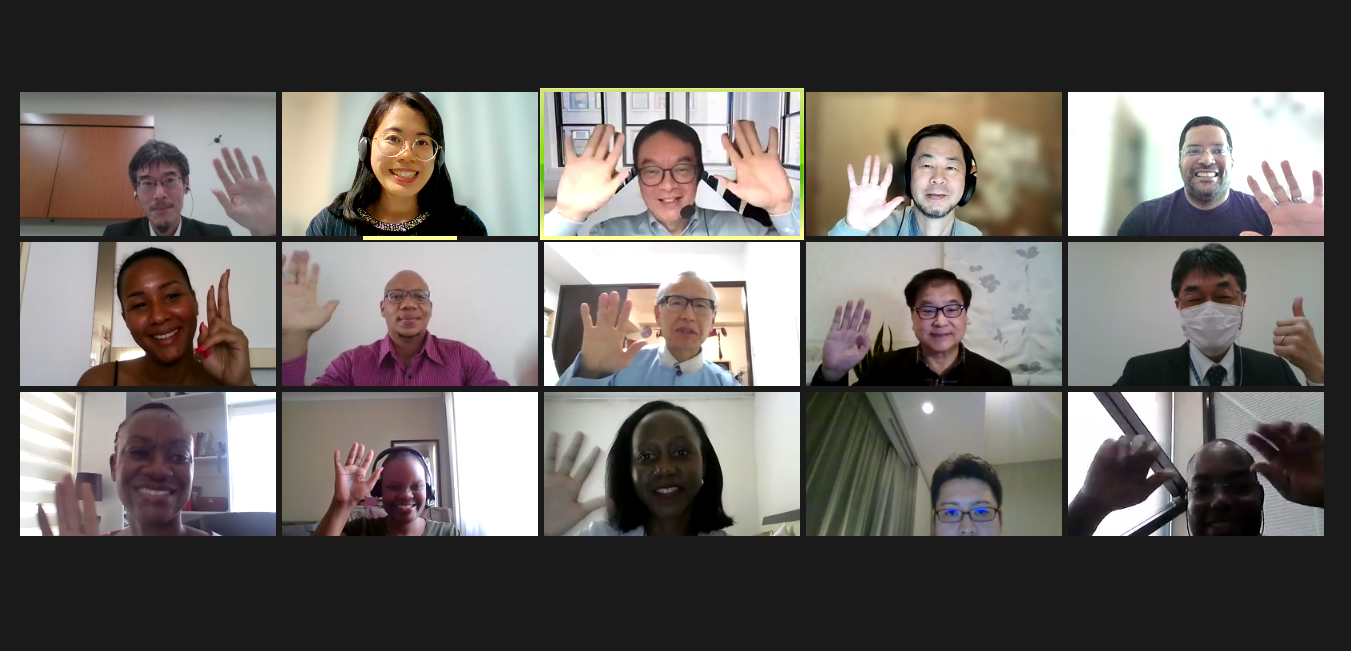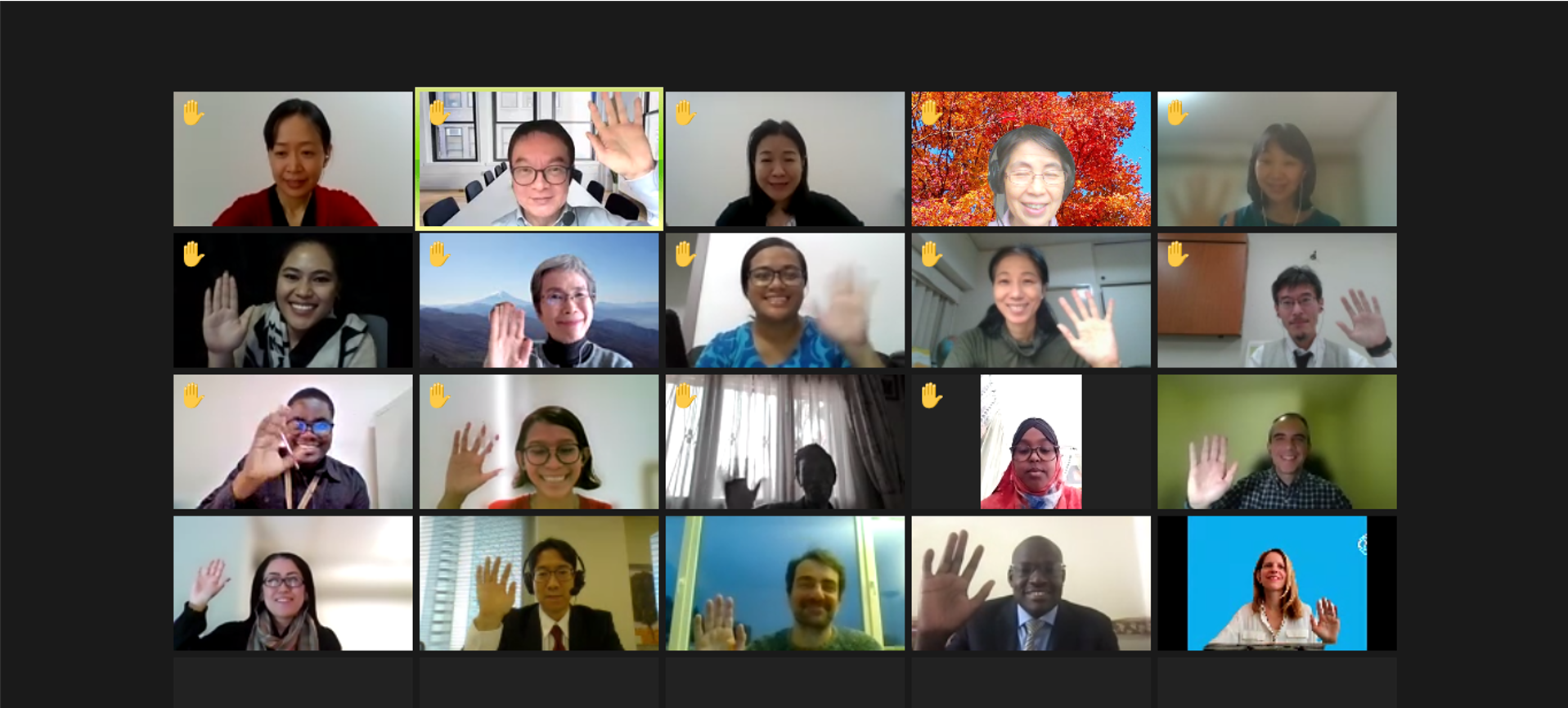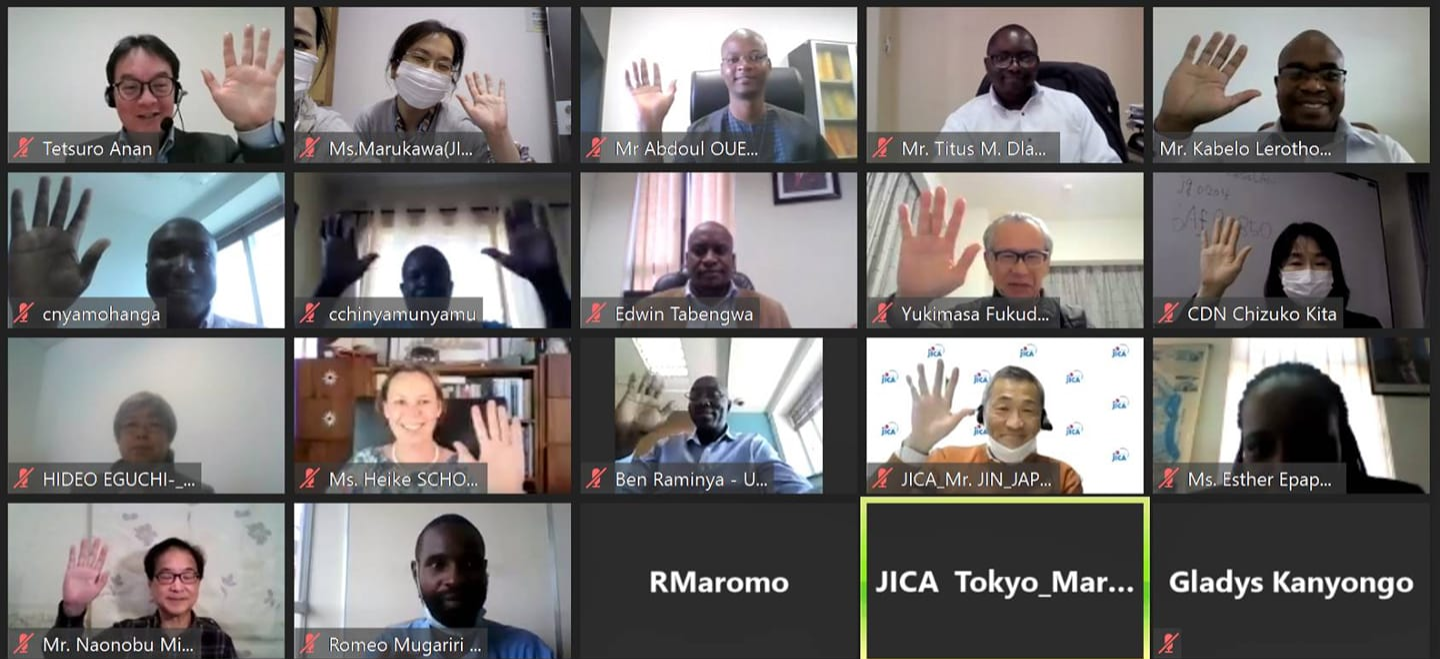2021
FY2021 JICA’s “Strengthening Development Finance Institutions in SADC Countries” Program
Between November 29 and December 9, 2021, IIMA took part in the Japan International Cooperation Agency (JICA)’s Knowledge Co-Creation Program: Strengthening Development Finance Institutions (DFIs) in SADC Countries. The program was held for ten senior officials of DFIs in the countries of the Southern African Development Community (SADC), Angola, Botswana, Lesotho, Namibia, South Africa, Togo, and Zambia. Same as last time, it was done totally by remote.
IIMA, together with the Japan International Cooperation Center (JICE), supported JICA in the planning and implementation of the program. The program, which IIMA has been supporting since 2015, is designed to train officers of DFIs on administrative and management skills of projects. This time the program focused on support and promotion of MSME.
The program consisted of lectures and workshops. Lectures were done by the Credit Guarantee Corporation of Tokyo, Japan Finance Corporation, Japan Financial Service Agency, Thailand’s Bank of Ayudhya, FINOLAB, and others. During the workshop, participating trainees developed and presented their Action Plans to solve the issues related to the support and promotion of MSMEs in their respective countries.
Despite being remote, the trainees contributed many things to the discussion throughout the lectures and the workshops. Also, there were active exchange of ideas between the lecturers and trainees, which helped the trainees gain various knowledge.
The same program is planned for next year. IIMA will continue its support of the program, and hopefully, everyone can participate in person.

FY2021 ”JICA-WB Collaborative Program: Public Debt and Risk Management”
As part of its ongoing relationship with the Japan International Cooperation Agency (JICA), IIMA participated in a JICA training program in collaboration with the World Bank from November 1 to November 19, 2021. The training was held for 41 senior officials from finance ministries and other organizations in 22 developing countries in Africa, Asia, the Middle East, and the Pacific.
IIMA worked with the Japan International Cooperation Center (JICE) to support the preparation and implementation of the training. The training focused on public debt and risk management (mainly contingent liabilities) and consisted of lectures and case studies, with the World Bank providing the lecturers and materials. Despite being done by remote, many trainees contributed to the case studies. There were lively discussion and exchange of ideas between the lecturers and trainees, which helped the trainees gain various knowledge.
The same program is planned for next year, and IIMA will continue to support the program. It is hoped to see everyone in person.

JICA’s "Information sharing session for Development Financial Institutions (DFIs) in SADC Countries
As part of Japan's ODA technical cooperation, the Japan International Cooperation Agency (JICA) invites financial authorities and organization officials from developing countries to participate in their training programs. Since 2014 IIMA has been working with JICA and dispatching lecturers to these programs.
One of the programs, the "Training Course on Strengthening Regional Development Finance Institutions (DFIs) in South African Development Community (SADC) countries," due to the Corona Virus pandemic, a simplified information sharing session was done by remote on February 9th and 10th. More than a dozen trainees who took part in past training programs participated remotely from their home countries, and lecturers were from JICA and IIMA. On the first day of the session, several participants gave presentations on the projects they had researched in the past programs, their progress, and problems after returning to their home countries. After that, they exchanged information and opinions with the JICA and IIMA lecturers. On the second day, JICA provided information on JICA's assistance activities, including COVID-19 measures; they exchanged information and opinions regarding each development finance institution's issues.
Although done by remote, there were lively discussions amongst the participants. We hope that the ideas obtained in this session will be helpful for the participants in promoting development policies in their home countries.

From JICA's Facebook
